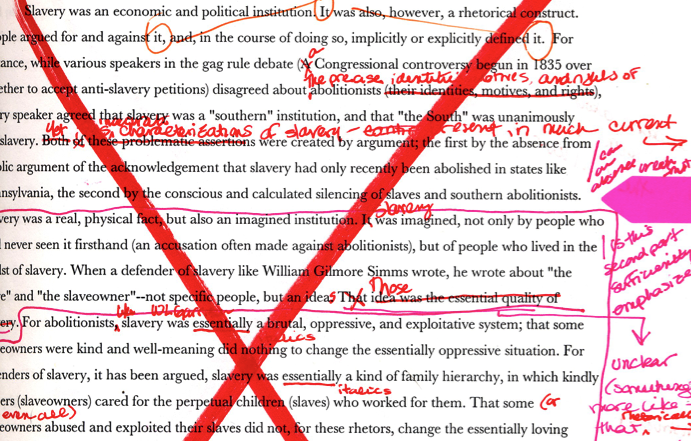
On Wednesday, I sent off the scholarly version of the demagoguery argument. It isn’t the book I once planned (that would involve a deeply theoretical argument about identity and the digital world), but it’s the one I really wanted to write, that would (I think) reach more people than that other one.
And it’s the last scholarly book I’ll write. I intend to spend the rest of my career trying to solve the interesting intellectual problem of making scholarly concepts and debates more accessible to non-academics. But that isn’t because I reject highly specialized academic writing as, in any way, a bad thing.
I have no problem with highly theoretical and very specialized books. My books have barely grazed the 1000 sales point, and that’s pretty good for a scholarly book. People have told me that something I’ve written has had an impact on their scholarship, pedagogy, program administration, so I’m really happy with my record as a scholar.
And I’m happy with the record of people who have sold both more and less because measuring impact is so very difficult. Publishing a book with an academic press is an extraordinary achievement, and measuring the impact of such books accurately is nigh impossible—a really powerful book is shared in pirated pdfs, checked out of libraries, passed from one person to another. Sales and impact are orthogonal in academia.
If you study the history of ideas even a little you have to know that what seemed major in the moment was sometimes just a trend (like mullets) and sometimes a sea change (like the synthesizer). No one reads Northrop Frye anymore, but he was a big deal at one moment, and yet Hannah Arendt is still in the conversation, who was also a big deal around the same time. And there are all those people who weren’t big deals in their era, but later came to have tremendous impact, such as Mikhail Bakhtin.
Some trade books on scholarly issues have had extraordinary sales (such as Mortimer Adler’s writings), but it’s hard to know what impact they had. Madison Grant’s racist book Passing of the Great Race had poor sales, but appears to have had a lot of impact. And there are lots of trade books that have come and gone without leaving any impact, so there’s no good reason to conclude that trade books necessarily have more impact than scholarly ones. I don’t think there are a lot of (any?) necessary conclusions that one can draw about whether trade or scholarly books have more impact, are more or less important, more or less valuable intellectual activity.
I have always loved Kenneth Burke’s analogy of the parlor for what it means to be interested in major questions. You show up at a party, he says, and it’s been going on for a while, and you find some conversation that seems interesting. You listen for a while, and then you take a side or point out something new. You get attacked and defended, and some people leave the conversation, and others join, and eventually you too leave. And it goes on, with other people taking sides that may or may not have to do with what you were arguing.
What Burke fails to mention is that, if it’s a good party, there are a lot of conversations going on. You might choose to leave that particular conversation, but not leave the party.
I have loved writing scholarly pieces (although I didn’t initially think I would), and my work has placed me in some particular conversations. I’ve moved from one conversation to another, but all on the side of the parlor engaged in very scholarly arguments. I’d like to leave that side of the parlor, not because it’s a bad one—it’s a wonderful one—but because it’s a party with a lot of conversations going on. I’d like to mingle.
I think a lot of discussions of the public intellectual make a lot of odd assumptions that assume binaries—that either specialized or public scholarship is good, for instance. Scholarship that speaks with authority to a small group is neither better nor worse than scholarship that reaches a broad audience—it’s just a different conversation in Burke’s parlor. And I’m going to wander over there for a bit.
